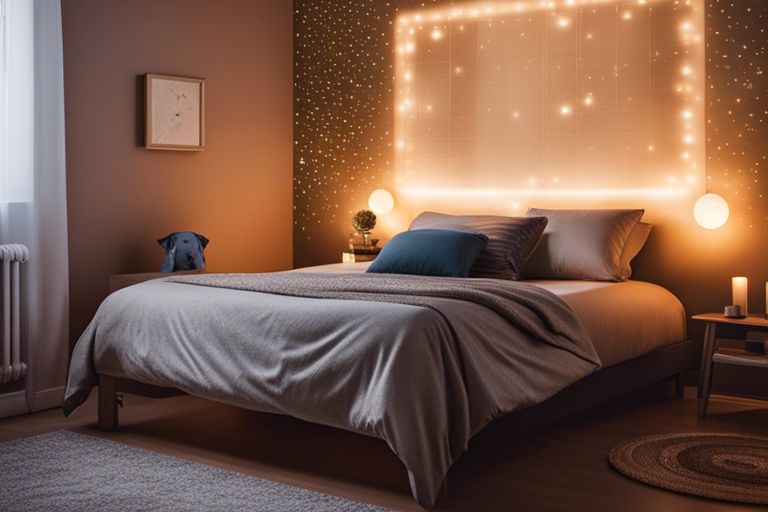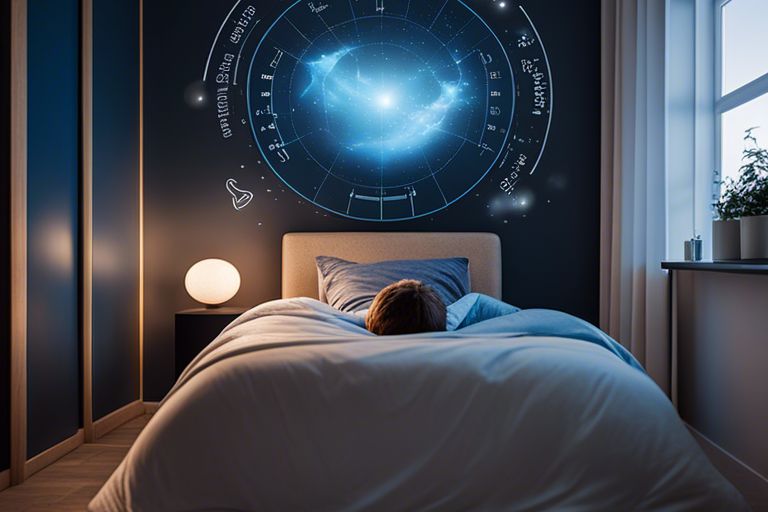Understanding the relationship between autism and sleep is crucial for individuals with Autism Spectrum Disorder (ASD) and their families. Sleep challenges are prevalent among those with ASD, with issues such as difficulty falling asleep, frequent awakenings, and irregular sleep patterns. Addressing these sleep challenges is essential as poor sleep can have a significant impact on an individual’s daytime functioning and overall well-being. By recognising the signs of sleep problems in individuals with ASD and implementing effective strategies to improve sleep quality, it is possible to enhance the quality of life for those with ASD and their caregivers.
Key Takeaways:
- Establish Consistent Bedtime Routine: Implementing a regular bedtime routine can help individuals with autism establish good sleep patterns.
- Minimise Screen Time Before Bed: Limiting exposure to screens and electronic devices before bedtime can aid in promoting better sleep quality.
- Consider Professional Help: Consulting a healthcare professional or sleep specialist can provide tailored strategies to address sleep challenges in individuals with ASD.

The Importance of Sleep in Autism
Sleep plays a crucial role in everyone’s health and well-being, but it is particularly important for individuals with Autism Spectrum Disorder (ASD). Getting enough quality sleep is essential for physical health, mental health, and overall quality of life.
Effects of Sleep Deprivation on ASD Symptoms
Sleep deprivation can significantly impact individuals with ASD, exacerbating behavioural challenges such as irritability, hyperactivity, and difficulties with social interactions. Studies have shown that lack of sleep can lead to increased repetitive behaviours, decreased attention span, and heightened anxiety levels in individuals with ASD.
Sleep’s Role in Development and Learning
Sleep plays a vital role in the development and learning abilities of individuals with ASD. Research has highlighted that during sleep, the brain consolidates learning and memory, which is essential for individuals with ASD who may struggle with communication and social skills. Adequate sleep also supports emotional regulation and cognitive function, crucial for overall development.
Furthermore, quality sleep has been linked to improved problem-solving skills and creativity, which are areas that individuals with ASD may find challenging. Therefore, establishing healthy sleep patterns and ensuring sufficient rest is essential for supporting the growth and development of individuals with ASD.

Common Sleep Challenges in ASD
Sleep problems are common in individuals with Autism Spectrum Disorder (ASD), which can have a significant impact on their quality of life and overall well-being. Understanding and addressing these sleep challenges are essential for improving the health and functioning of individuals with ASD.
Difficulty Falling Asleep
One of the most prevalent sleep challenges in individuals with ASD is difficulty falling asleep. Many individuals with ASD struggle to initiate sleep, often taking a long time to wind down and relax before bedtime. This can lead to increased levels of anxiety and stress, further exacerbating their sleep difficulties.
Establishing a calming bedtime routine can be beneficial for individuals with ASD who struggle to fall asleep. This routine may include activities such as reading a book, listening to calming music, or engaging in gentle relaxation exercises to help them unwind and prepare for sleep.
Night Wandering and Parasomnias
Another common sleep challenge in individuals with ASD is night wandering and parasomnias. Night wandering involves individuals getting out of bed during the night and moving around the house, which can pose safety risks such as falling down stairs or wandering outside unsupervised. Parasomnias, such as sleepwalking or night terrors, are also more prevalent in individuals with ASD.
It is important for parents and caregivers to create a safe sleep environment for individuals with ASD who experience night wandering and parasomnias. This may involve using safety gates, locks on doors, or monitoring devices to ensure the individual’s safety during the night. Seeking advice from a healthcare professional experienced in sleep disorders in ASD can also be helpful in managing these challenging behaviours.

Strategies for Improving Sleep
Creating an Optimal Sleep Environment
Creating an optimal sleep environment is crucial for individuals with Autism Spectrum Disorder (ASD) to improve their quality of sleep. This includes ensuring the bedroom is dark, quiet, and comfortable. Investing in blackout curtains, white noise machines, and comfortable bedding can help create a calming space conducive to sleep. Additionally, maintaining a consistent bedtime routine can signal to the body that it is time to wind down and prepare for sleep.
To further enhance the sleep environment, it is beneficial to minimise stimulating activities before bedtime. This includes limiting screen time, avoiding caffeine, and engaging in relaxing activities such as reading or listening to soothing music. By creating a tranquil and soothing sleep environment, individuals with ASD can optimise their chances of getting a restful night’s sleep.
Behavioural and Therapeutic Approaches
Implementing behavioural and therapeutic approaches can be effective in addressing sleep challenges in individuals with ASD. Strategies such as establishing a consistent bedtime routine, using visual schedules, and incorporating sensory activities can help regulate the sleep-wake cycle. Behavioural interventions, such as gradual fade techniques and positive reinforcement strategies, can also be beneficial in promoting healthy sleep habits.
Moreover, therapeutic approaches like cognitive behavioural therapy for insomnia have shown promising results in improving sleep quality in individuals with ASD. This tailored approach focuses on addressing behavioural patterns and thoughts that may be contributing to sleep disturbances, helping individuals develop better sleep hygiene practices. By combining these behavioural and therapeutic strategies, individuals with ASD can work towards establishing a consistent and restful sleep routine.
Conclusion: Autism and Sleep – Addressing Sleep Challenges in ASD
When all is said and done, addressing sleep challenges in individuals with Autism Spectrum Disorder (ASD) is crucial for improving their overall well-being and quality of life. By implementing strategies such as consistent bedtime routines, creating a conducive sleep environment, and considering additional therapies or medications if necessary, better sleep outcomes can be achieved for people with ASD. It is essential for caregivers, healthcare professionals, and educators to collaborate and tailor interventions to the specific needs of each individual with ASD to promote healthy sleep habits and a better sleep quality, ultimately enhancing their daily functioning and behavioural outcomes.
FAQ
Q: What are common sleep challenges faced by individuals with Autism Spectrum Disorder (ASD)?
A: Individuals with ASD often experience difficulties with falling asleep, staying asleep, and having irregular sleep-wake patterns.
Q: Why do individuals with Autism often have sleep challenges?
A: The exact reasons are not fully understood, but sensory sensitivities, anxiety, communication difficulties, and genetic factors may contribute to sleep challenges in individuals with ASD.
Q: How can a disrupted sleep pattern affect individuals with Autism?
A: Disrupted sleep patterns can lead to increased behavioural issues, difficulties with concentration, irritability, and overall reduced quality of life for individuals with Autism.
Q: What strategies can be helpful in addressing sleep challenges in individuals with ASD?
A: Establishing a consistent bedtime routine, creating a calm sleep environment, incorporating sensory-friendly elements, and seeking professional guidance are some strategies that can help address sleep challenges in individuals with ASD.
Q: Is melatonin a safe and effective option for managing sleep difficulties in individuals with Autism?
A: Melatonin supplementation may be considered under the guidance of a healthcare professional for individuals with ASD experiencing significant sleep difficulties. It is important to follow dosing recommendations and monitor its effects carefully.
Q: How important is it to seek professional help for sleep challenges in individuals with Autism?
A: It is crucial to consult healthcare professionals, such as paediatricians, sleep specialists, or behavioural therapists, to develop a comprehensive plan for addressing sleep challenges in individuals with Autism and to ensure their overall well-being.
Q: Are there any lifestyle changes that can promote better sleep for individuals with ASD?
A: Encouraging physical activity during the day, limiting screen time before bed, maintaining a consistent sleep schedule, and ensuring a comfortable sleep environment are some lifestyle changes that can promote better sleep for individuals with ASD.







